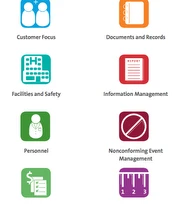You'll receive the latest updates on new standards, guidelines, and educational resources, as well as expert insights to help enhance your laboratory's performance and compliance.
Insights Blog
Explore the latest developments in laboratory standards, guidelines, and best practices. Our expert perspectives and stories provide up-to-date information about what's new in laboratory testing.
All Insights
Filters
{{ sortLabels[option] }}
June 12, 2018
Because of the risk of addiction or abuse, it’s common practice to monitor pain management patients for compliance with therapy.
May 15, 2018
In 1968, CLSI wanted to standardize blood chemistry testing. Today we offer a full library of clinical chemistry documents, guides, and method evaluations.
May 4, 2018
CLSI celebrates our dedicated nursing colleagues by recognizing the importance of nurses and the relationship of nurses and laboratorians. Learn more.
May 3, 2018
The World Health Organization campaign, "Save Lives: Clean Your Hands," aims to prevent sepsis through hand hygiene and infection control. Learn more.
April 17, 2018
AIME, a start up company, has developed a new software that can accurately predict the spread of Dengue three months ahead of an outbreak.
Antimicrobial Susceptibility Testing
Microbiology
Public Health (1)
April 12, 2018
A forgotten antibiotic has shown promise in treating antimicrobial resistant bacteria.
Antimicrobial Susceptibility Testing
March 7, 2018
New on the blog, "CLSI Partners with Dominican Republic to Provide HIV Testing Training."
March 5, 2018
Find the answer to "When Should Clinical Microbiology Laboratories Perform Carbapenemase Detection Tests?"
Antimicrobial Susceptibility Testing
March 2, 2018
Learn more about "How CLSI Got the Quality System Essentials (QSEs)" from Lucia M. Berte MA, MT(ASCP)SBB, DLM, CQA(ASQ)CMQ/OE of Laboratories Made Better!
Quality Management
February 28, 2018
Read the latest President's Message, posted on February 2018, by Carl D. Mottram.
No Results
No results were returned for that query.









